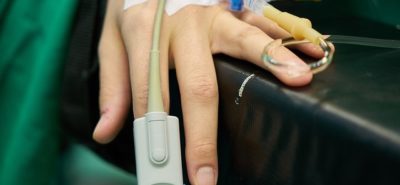Women in Illinois who suffer from pelvic organ prolapse or stress urinary incontinence may choose to have surgery in order to repair the problem. This is often done by using a surgical mesh, or netting, which acts as a support to keep the organs in their proper place. While the procedure was extremely popular in the 1990s, new information and a wave of injured patients has recently shed light on the potential dangers associated with the use of these mesh implants. Reuters reports that over 70,000 patients are currently petitioning the courts for help after their implants failed and caused them severe complications.
U.S. District Judge Joseph Goodwin is presiding over all 70,000 cases, which have been consolidated into one of the largest mass torts in the nation’s history. The Charleston, West Virginia judge has urged the transvaginal mesh device makers to settle and warns that it could take decades and millions of dollars in order to try each case. In an act that may not surprise a personal injury lawyer in Chicago, the three remaining key defendants maintain that their devices are perfectly safe and have yet to offer a settlement.
Potential complications
Transvaginal mesh has been connected to severe and dangerous problems for thousands of women, including the following:
- Organ damage
- Painful sexual intercourse
- Hemorrhaging
- Erosion of the mesh in the vagina
- Severe pain
Patients may also endure infections and a complete failure of the device which returns them to their pre-surgery problem. A personal injury lawyer in Chicago understands that many patients who experience these symptoms require surgery to remove the device and correct any damage the device has done to surrounding organs and tissue.
Known risks
The dangers of transvaginal mesh devices became so severe that the U.S. Food and Drug Administration, which oversees the safety of medical device use, issued a Public Health Notification in 2011 focused solely on the complications associated with the use of these implants. In it, the FDA recommends that doctors warn patients of the potentially severe consequences of using the devices.
Further information regarding potential medical injuries associated with the use of these mesh devices comes from the New England Journal of Medicine. In a recent study published in the journal, researchers compared the use of tranvaginal mesh with another treatment commonly used to rectify the same conditions. Researchers found that while the implant mesh is often associated with a higher rate of success in the treatment of pelvic organ prolapse and stress urinary incontinence, it is often associated with far more postoperative adverse events.
Continued use
Despite the well-documented complications often associated with the use of transvaginal mesh implants, and the thousands of unresolved lawsuits currently in play, many doctors continue to place them in their patients. Those who have experienced complications with their transvaginal mesh implants or other implant devices should contact a personal injury lawyer in Chicago for assistance.

